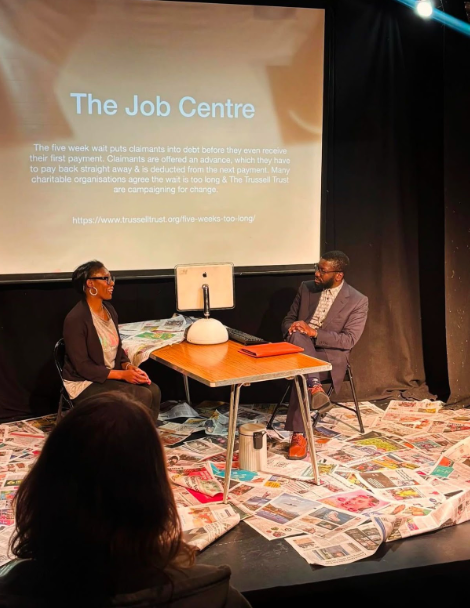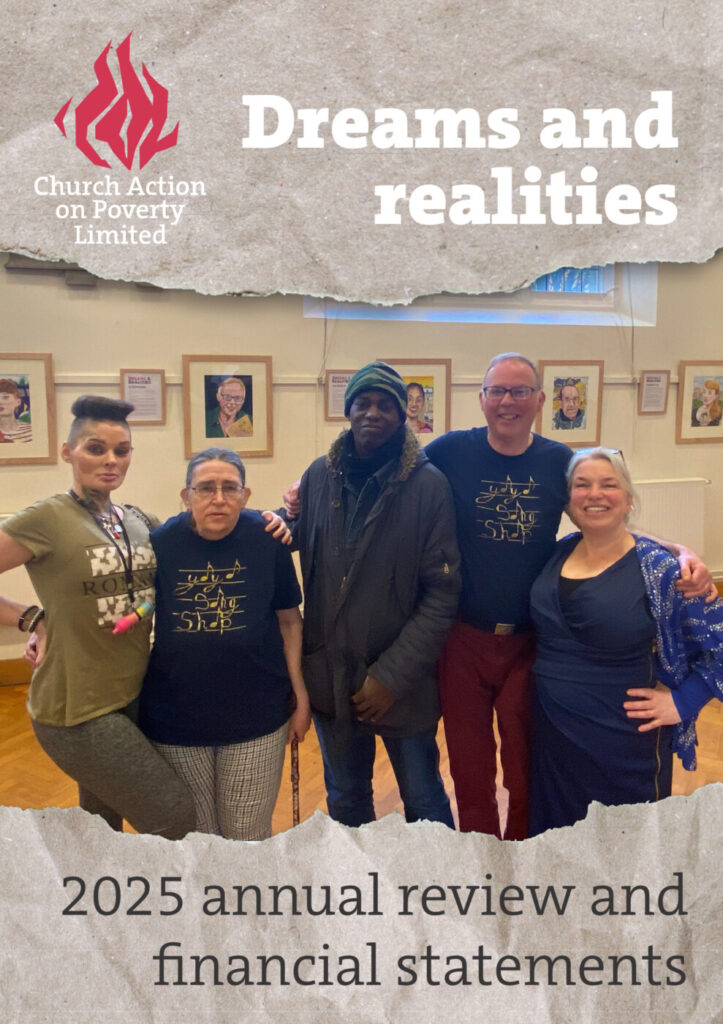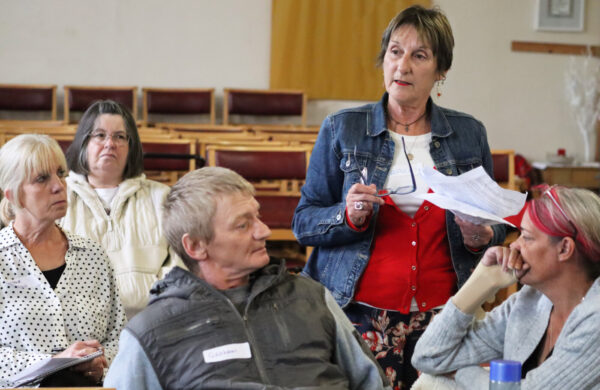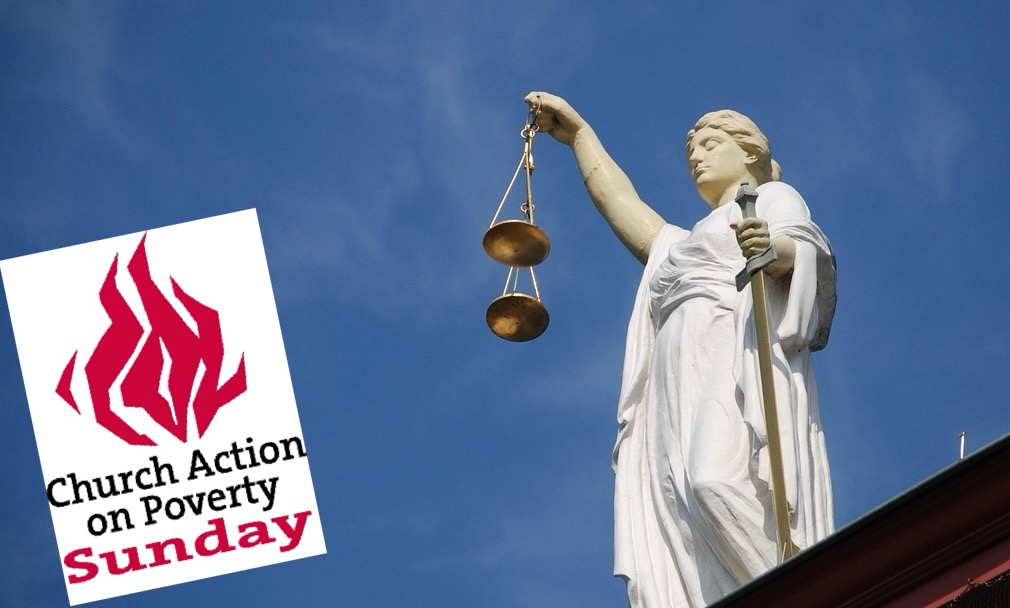Our new roundtable guide will help churches or dioceses to host productive regional events
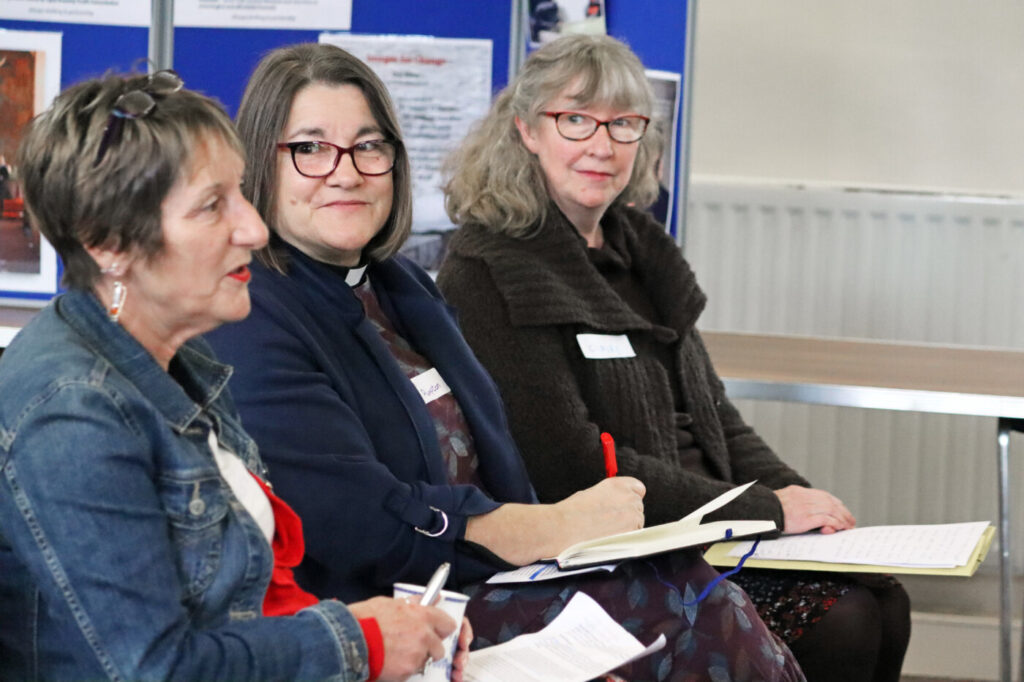
We’ve published a new resource for churches and dioceses who would like to start constructive regional conversations about tackling poverty.
Too often in society, we hear from the same voices over and over again, but if we want to make a real difference in social justice, we need wider, more productive conversations.
One way to start is to organise a regional roundtable event, bringing together church leaders, people in poverty, and community groups from your city or region.
Church Action on Poverty has co-hosted two such events in recent years, and we’ve learnt along the way.
This guide explains why such events are useful, and gives practical tips if you want to organise a similar event.
How music and art helped churches grasp poverty
Art and music are great ways to bring people together for good – as The Let’s Face It! exhibition shows Churches in the South West …
Why Christians can’t keep out of politics
This spring, Church Action on Poverty will support a course looking at combining theology and politics. James Butler of the Church Mission Society sets out …
26 in 26: 200 churches register for social justice idea
Justice is integral to our faith. Church Action on Poverty and Christian Aid have teamed up to produce a new poster that your whole church …
Pilgrims call for more support in low-income neighbourhoods
Bob Rae reports on Sheffield Church Action on Poverty’s annual pilgrimage Anti-poverty campaigners in the Sheffield neighbourhoods of Firvale, Wincobank and Firth Park are calling for major improvement …
How should churches address rural poverty?
How is rural poverty changing, and how should churches, dioceses and Government respond? Paul Phillips explores the issue, and reports on his diocese’s work. In …
Faith In The City: why it still matters, 40 years on
In a new book, authors Terry Drummond and Joseph Forde revisit the landmark Faith In The City report, 40 years on. Faith in the City, …
How music and art helped churches grasp poverty
Art and music are great ways to bring people together for good – as The Let’s Face It! exhibition shows …
Why Christians can’t keep out of politics
This spring, Church Action on Poverty will support a course looking at combining theology and politics. James Butler of the …
26 in 26: 200 churches register for social justice idea
Justice is integral to our faith. Church Action on Poverty and Christian Aid have teamed up to produce a new …

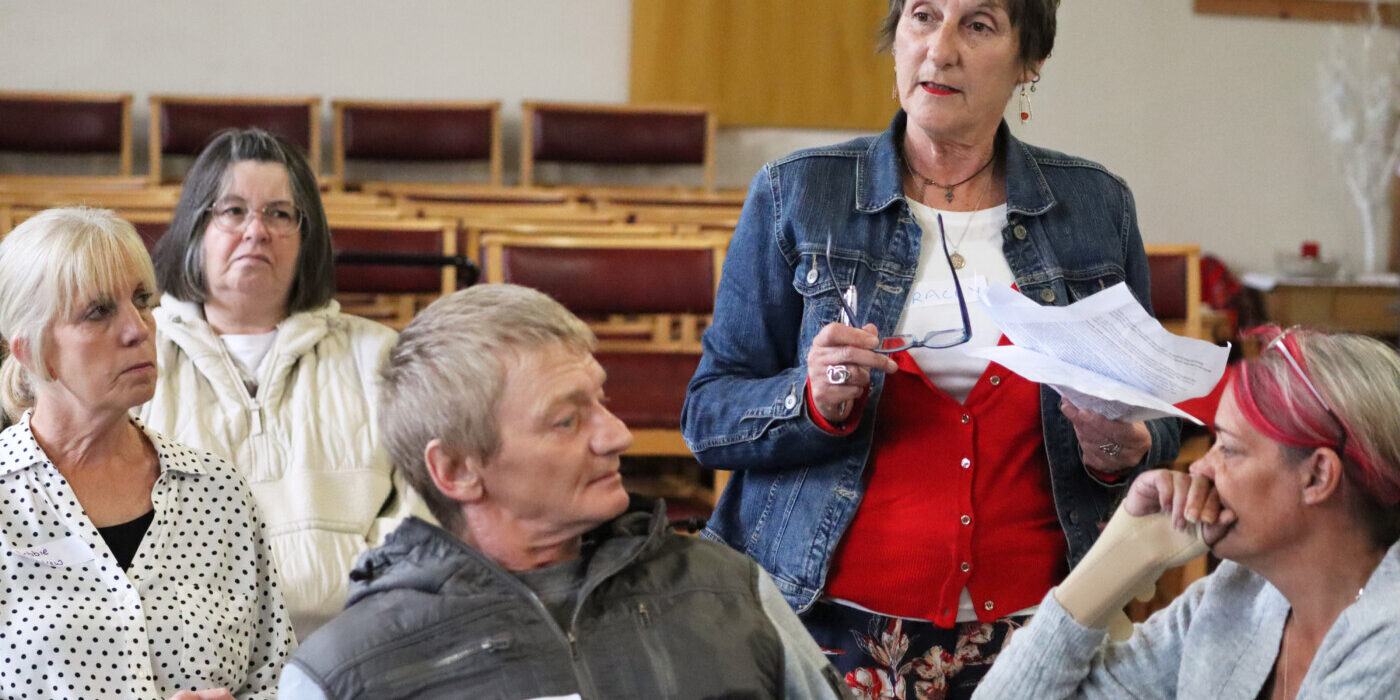
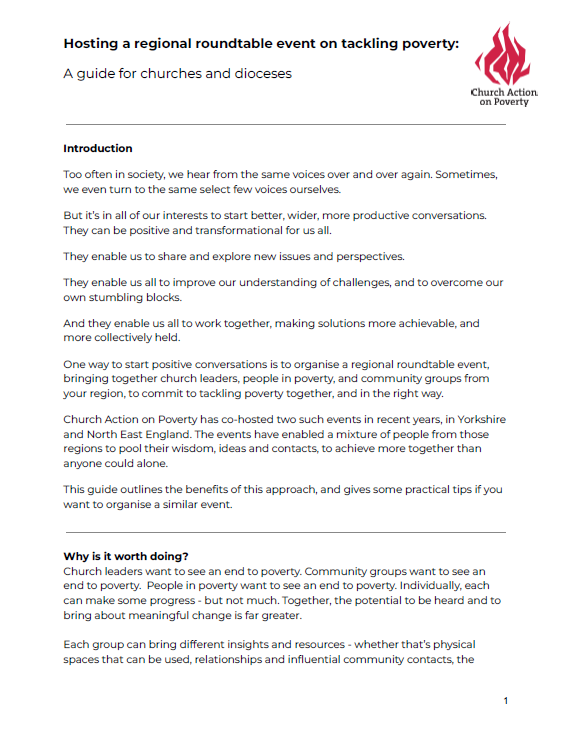
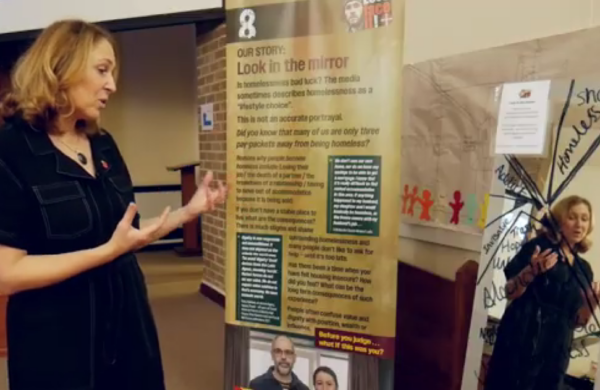

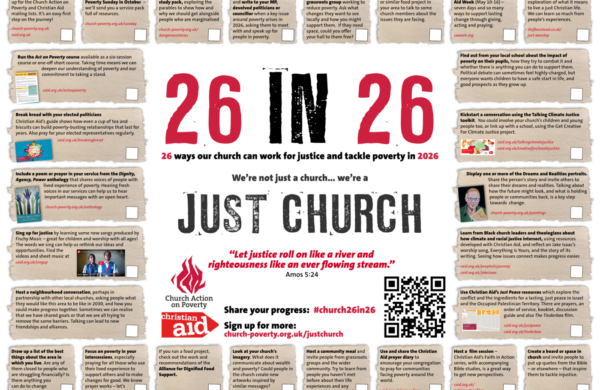

 Ellie Malhotra reviews a new play, a much-needed wake-up call for change that restores power to voices that are too often ignored.
Ellie Malhotra reviews a new play, a much-needed wake-up call for change that restores power to voices that are too often ignored.